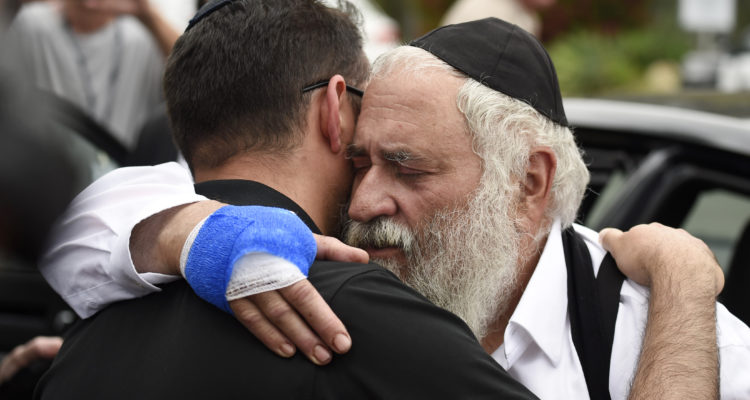U.S. religious centers are buying insurance to deal specifically with active shooters.
By World Israel News Staff
U.S. religious centers have been buying separate “active assailant” insurance policies as shootings at churches, synagogues and mosques become more common, Reuters reports.
The Poway Chabad synagogue attack in a suburb of San Diego on April 27, in which one woman was killed while stepping in front of an active shooter to defend her rabbi has brought renewed attention to the vulnerabilities of religious institutions to violent attack.
Religious establishments generally make easy targets due to their “unique risks,” insurers and brokers tell Reuters — they are meant to be welcoming and congregants’ backs are turned to the entrances.
“You come in the back and everyone is facing the other way,” Peter Persuitti, who leads the religious practice for insurance broker Arthur J. Gallagher & Co., tells Reuters. “They are so vulnerable.”
“You didn’t think about it until the last couple of years and now it’s something that you think about all the time,” Brian McAuliffe told the news wire. Mr. McAuliffe is director of risk management for Willow Creek Community Church, which has six Illinois locations that serve 20,000 congregants.
Coverage for Willow Creek costs a “couple of thousand dollars” a year, McAuliffe says, amounting to only a small fraction of its total insurance costs.
The Archdiocese of Indianapolis bought active assailant coverage last year, “covering 141 parishes and 75 schools,” Mike Witka, director of risk management, told Reuters.
Insurance companies have also stepped up educational programs to teach policyholders to manage violent attack. “For example, nearly 200 parishioners and staff from congregations insured through Church Mutual Insurance Co packed a church in Lenexa, Kansas, last month for a half-day seminar. They learned how to develop security plans and minimize bloodshed if someone opens fire,” Reuters reports.
The Poway synagogue attack took place exactly six months after the attack on the Tree of Life synagogue in Pittsburgh, in which 11 congregants were killed and seven injured on Oct. 27, 2018, making it the deadliest attack on the Jewish community in U.S. history.
Those attacks follow a string of others. In 2017, 26 people were killed at the First Baptist Church in Sutherland Springs, Texas. In 2015, nine congregants were killed at the Emanuel African Methodist Episcopal Church in Charleston, South Carolina. In 2012, six people died at the Sikh Temple of Wisconsin in 2012.
And between March 26 and April 4, three mainly black churches suffered arson attacks in southern Louisiana.




